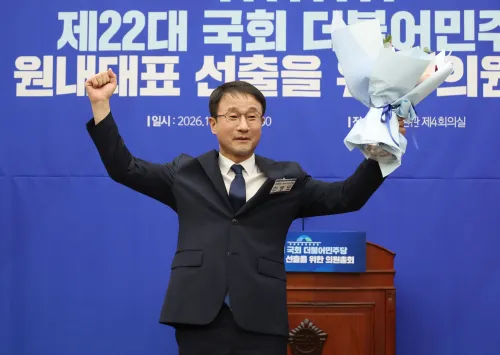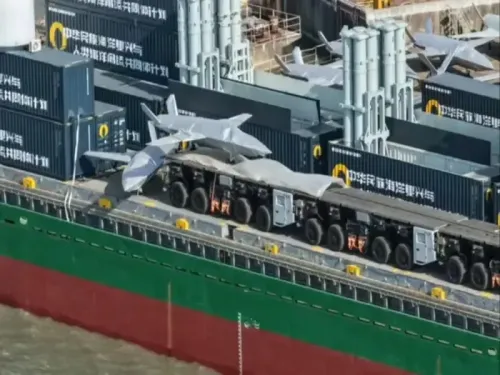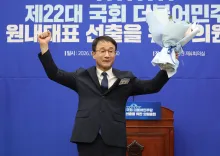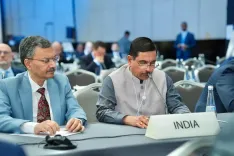Why Were South Korea-US '2+2' Trade Talks Delayed?
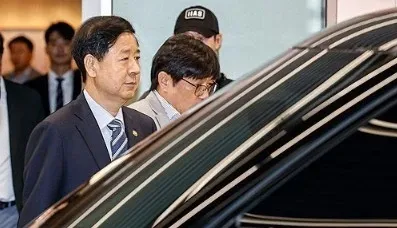
Synopsis
Key Takeaways
- Trade talks between South Korea and the US have been postponed.
- The delay is due to the urgent schedule of US Treasury Secretary Scott Bessent.
- New dates for discussions will be set shortly.
- The US plans to impose 25% reciprocal tariffs on South Korean products starting August 1.
- Continued consultations will occur despite the delay.
Seoul, July 24 (NationPress) High-level trade discussions between South Korea and the United States that were set for this week have been postponed due to an urgent schedule of the US Treasury Secretary Scott Bessent, as announced by Seoul's finance ministry on Thursday.
The anticipated '2+2' dialogue was planned for Friday (local time) in Washington, featuring Finance Minister Koo Yun-cheol and Trade Minister Yeo Han-koo, along with Bessent and US Trade Representative Jamieson Greer, all in preparation for the August 1 negotiation deadline.
“The US has suggested rescheduling talks soon, and both nations will establish a new date for discussions at the earliest opportunity,” stated ministry spokesperson Kang Young-kyu.
When questioned about the timing of the notification, Kang revealed that the US informed the South Korean government around 9:00 a.m. Thursday, just an hour before the newly appointed finance chief was set to depart for Washington.
Koo, who was awaiting departure at Incheon International Airport, had to cancel his planned two-day visit, according to Yonhap news agency.
Kang highlighted that the US side expressed multiple apologies and clearly indicated their desire to reschedule talks as soon as possible.
Yeo and Industry Minister Kim Jung-kwan, who had already arrived in the US capital, are continuing discussions with their US counterparts as originally planned, he added.
The high-stakes negotiations occur as Washington is preparing to impose a 25 percent 'reciprocal' tariff on South Korean goods starting August 1, in addition to existing sector-specific taxes on automobiles and steel.
The reciprocal tariffs first took effect on April 9 but were immediately suspended by US President Donald Trump for 90 days to facilitate negotiations. This suspension was extended, with implementation now planned for August 1.
South Korea is experiencing increased pressure in the ongoing tariff discussions following the conclusion of trade negotiations between Japan and the US earlier this week.
President Trump previously announced that his administration has reached a major deal with Japan to reduce reciprocal tariffs from 25 percent to 15 percent in exchange for expanded access to the Japanese market for US automobiles, trucks, rice, and other agricultural products, along with a $550 billion investment commitment from Tokyo.


